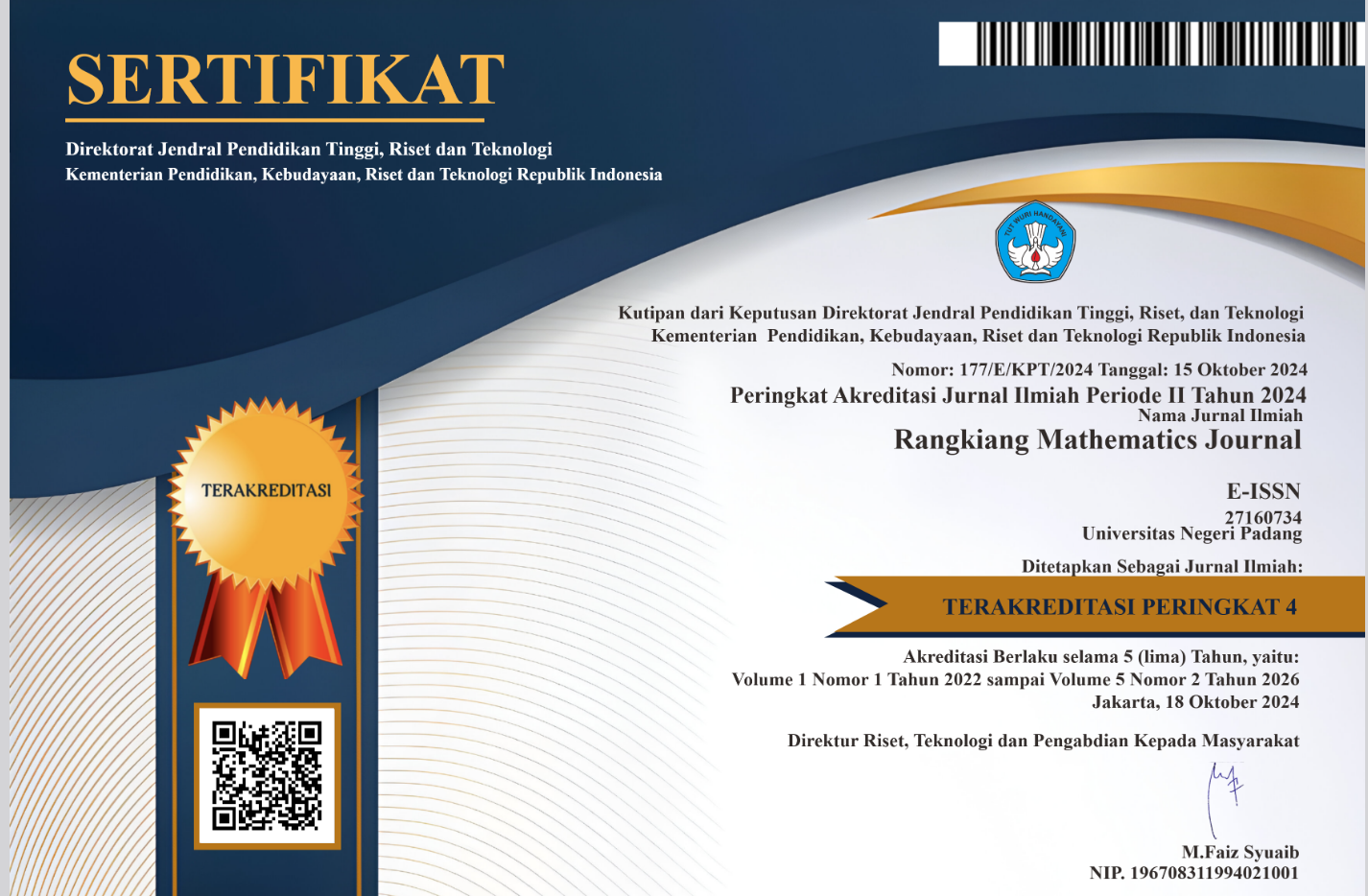The Influence of Scientific Approach with the Socratic Method on Learning Outcomes and Students' Mathematical Critical Thinking Dispositions
DOI:
https://doi.org/10.24036/rmj.v1i1.2Keywords:
Scientific Approach, Socratic Method, Mathematical Critical Thinking Disposition, Learning OutcomesAbstract
This research is based on the low learning outcomes and critical thinking disposition of students at MTsN 7 Tanah Datar. The purpose of this study was to determine the differences in the acquisition of students' mathematics learning outcomes after using the scientific approach with the Socrates method with the acquisition of students' mathematics learning outcomes with conventional learning, to find out how students' mathematical critical thinking dispositions after using the scientific approach with the Socratic method. This type of research is quasi-experimental research. The instruments used were tests of students' mathematics learning outcomes, observation sheets, and questionnaires. Based on the results of data analysis, the acquisition of students 'mathematics learning outcomes after using the scientific approach with the Socrates method is better than the acquisition of students' mathematics learning outcomes using conventional learning. Meanwhile, students' mathematical critical thinking disposition in mathematics learning using a scientific approach with the Socrates method is classified as a successful category.
















